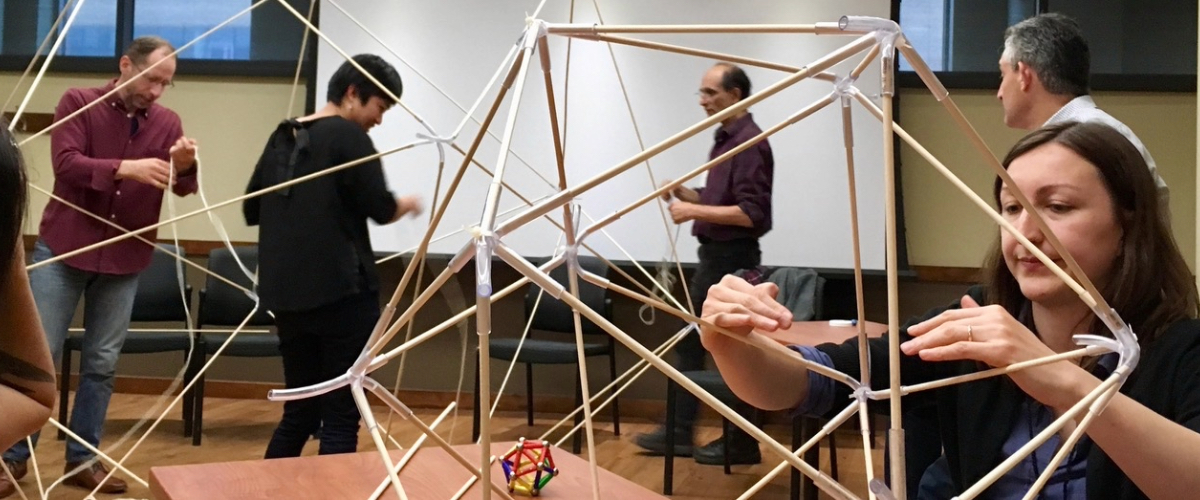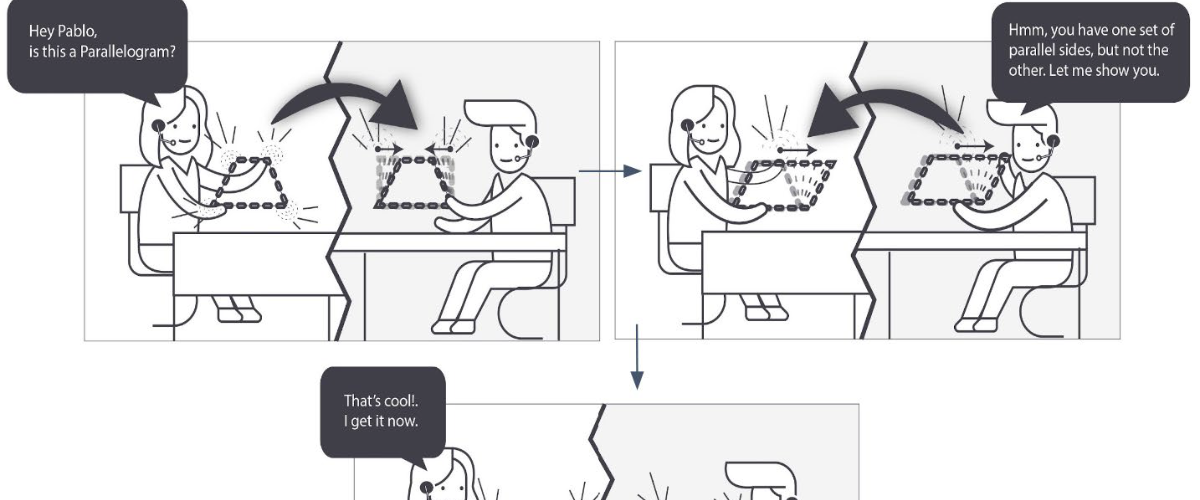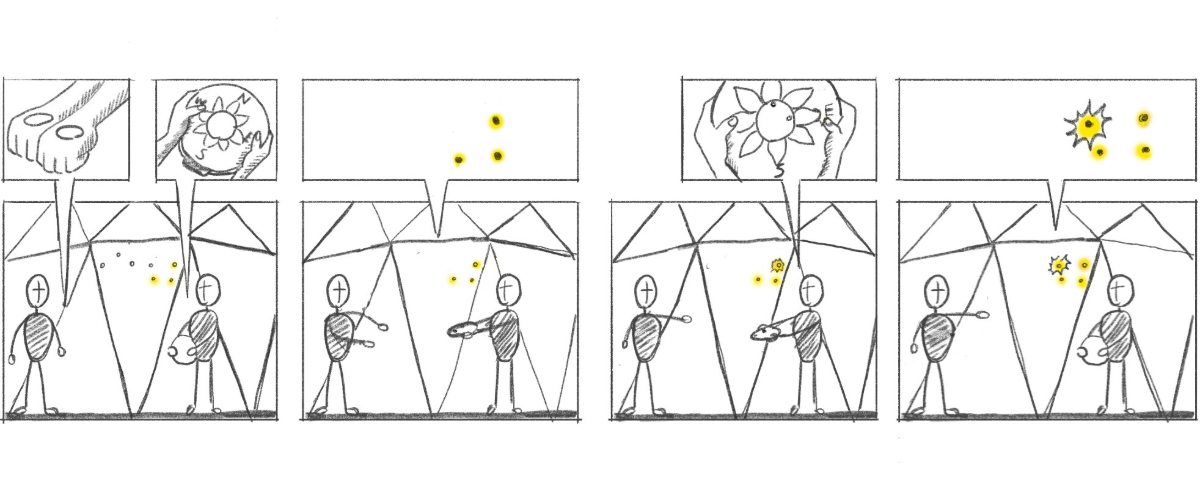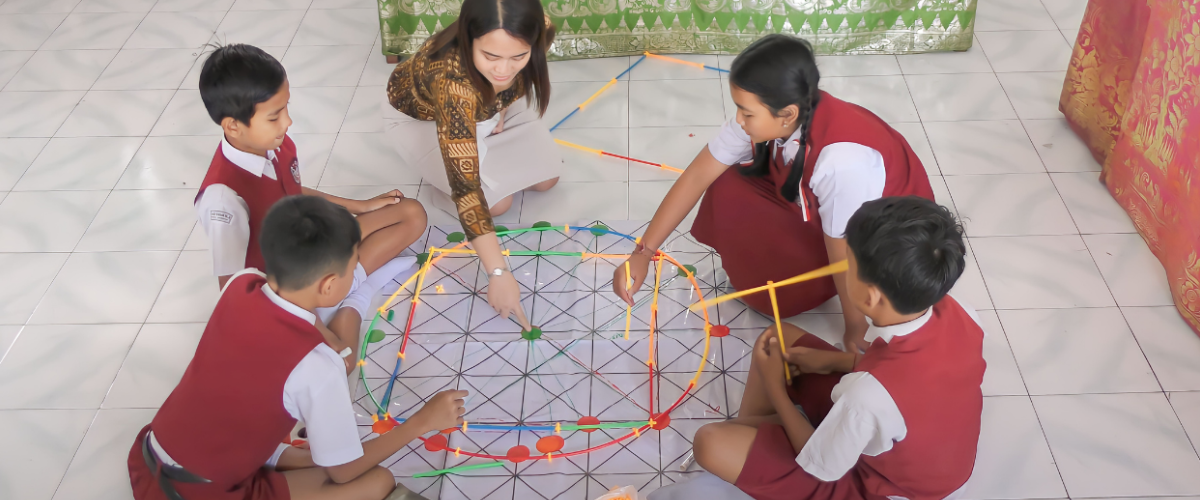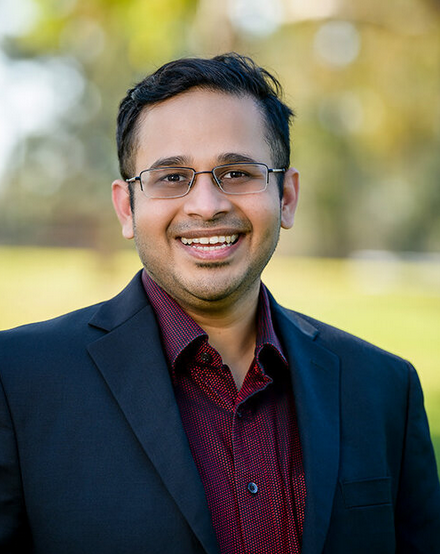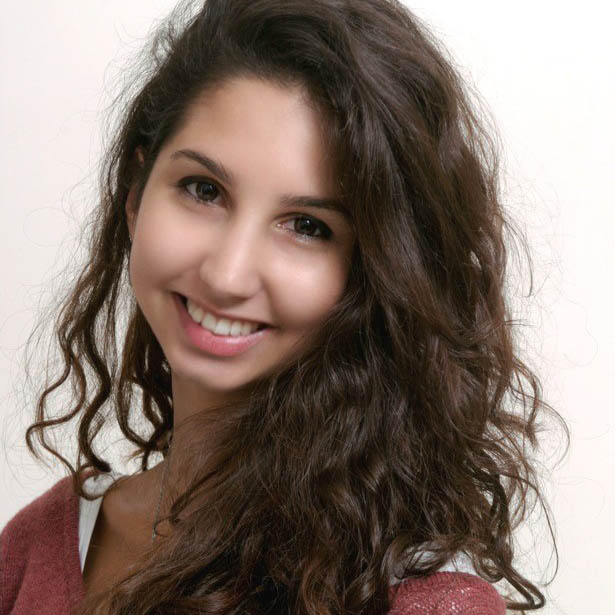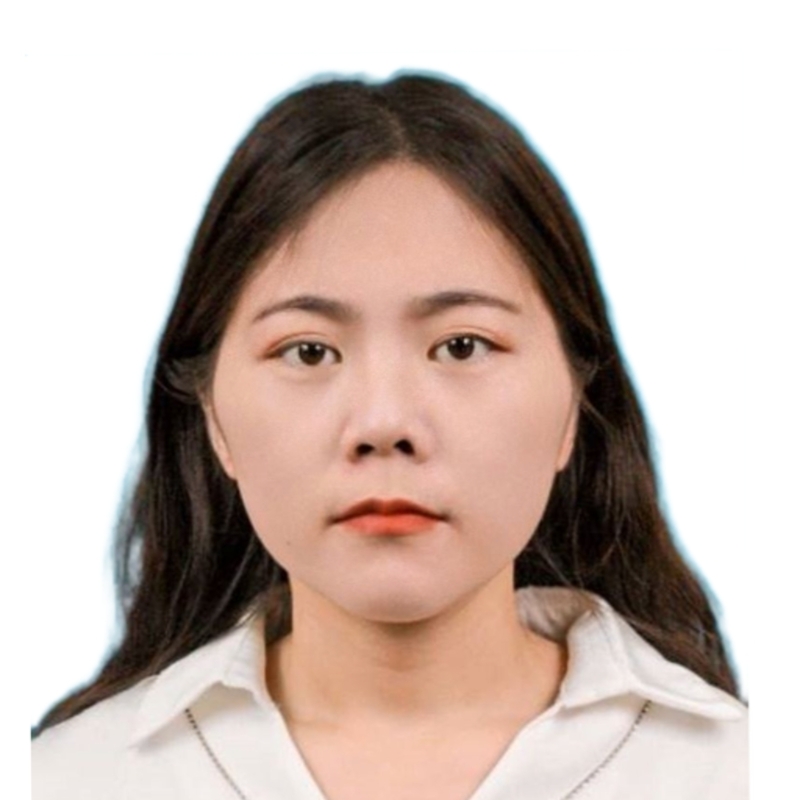Summer 2025
Ronnie Videla Reyes
Profesor Asistente, Universidad Santo Tomás, Chile
Ronnie Videla is an interdisciplinary educator and practice-based researcher who designs STEAM learning environments by integrating emerging technologies through an embodied cognition approach. He earned his Ph.D. in Education with highest distinction (Cum Laude) from Universidad Autónoma de Madrid (2024) for his original theoretical contribution, “The Pedagogy of Uncertainty.” Since 2015, he has explored the dynamic relationships between brain, body, and environment.
After studying Cultural Biology with Professor Humberto Maturana, he adopted the 4E Cognition framework (enactive, embodied, embedded, and extended), which later evolved into the 3E Cognition model through his collaboration with neuroscientist Francisco Parada. Ronnie leads interdisciplinary projects involving XR, AI, and creative technologies through the HUB-EDUCA STEAM Foundation and the Faculty of Education at Universidad Santo Tomás, engaging hundreds of teachers and students across Chile. He currently collaborates with Professor Dor Abrahamson (UC Berkeley) on the development of an expansive theory of embodied educational design, inspired by the intellectual legacy of Seymour Papert and Francisco Varela.
Recent publication:
Videla, R., Penny, S., & Ross, W. (2025). ‘If you can’t dance your program, you can’t write it’: Challenges and implications for AI in education. ACM Transactions on Computing Education. Advance online publication. https://doi.org/10.1145/3759257
https://dl.acm.org/doi/10.1145/3759257
Videla, R., Aros, M., Sandoval-Obando, E. et al. (2025). Sustainable computing in STEAM generative education: integrating biology, art, science of design and engineering with nature. Int J Technol Des Educ. https://doi.org/10.1007/s10798-025-10013-2
Videla, R., Aros, M. B., Parada, F., Kausel, L., Sandoval-Obando, E., Jorquera, D., Ibacache, D., Maluenda, S., Rodríguez-Herrero, P., Cerpa, C., González, M. J., Chávez, M., & Ramírez, P. (2025). Neurodiversity: post-cognitivist foundations of the 3E approach for educational inclusion of autistic students with technology. Frontiers in human neuroscience, 18, 1493863. https://doi.org/10.3389/fnhum.2024.1493863
Videla R., Penny S. & Ross W. (2024) Inclusive and AI design: Reflections and challenges for enaction design. Constructivist Foundations 20(1): 047–050. https://constructivist.info/20/1/047
Videla, R., Aguayo, C., Aguilera, J., Aros, M., Ibacache, C., Valdivia, P., & Cerpa, C. (2024). Cultivating cultural heritage and fostering belonging in communities through digital and non-digital technologies in generative STEAM education. Knowledge Cultures, 12(2), 21-48. https://doi.org/10.22381/kc12220242.
Spring 2025
Hee-jeong Kim
Associate Professor, Korea University
Dr. Hee-jeong Kim is an Associate Professor of Mathematics Education at Korea University in South Korea. Her research focuses on fostering critical thinking in mathematics classrooms and supporting teachers to implement those practices. Her works include mathematics classroom discourse by participating the International Lexicon Project with 10 countries, teacher noticing and responsive teaching, mathematical modeling, and the use of AI digital tools and textbooks in classroom settings. She also investigates how AI can function within the framework of instrumental orchestration, where the teacher strategically integrates and coordinates digital and non-digital tools to support students’ mathematical thinking and promote meaningful engagement.
Dr. Kim earned her PhD in Mathematics Education from the University of California, Berkeley, and is thrilled to return as a visiting scholar. She looks forward to re-engaging with Berkeley’s rigorous and intellectually vibrant research community. As a visiting scholar at the Embodied Design Research Laboratory (EDRL), Dr. Kim aims to explore how embodied cognition theory can inform the use of AI-based digital tools in mathematics classrooms, with the goal of deepening conceptual understanding and supporting both students and teachers in critical, technology-enhanced learning environments.
Recent publications:
Kim, H. & Lim, W. (2025). Discussion patterns in a middle school mathematics classroom: a case of implementing formative assessment lessons. Instructional Science.
Carlisle, W., Jung, H., Wickstrom, M., Sutcliffe, K., & Kim, H. (2025). Insights into pothole damage: Exploring culturally responsive mathematical modeling. International Journal of Science and Mathematics Education, 23, 1013-1032.
Lee, H. & Kim, H. (2024). Learning from noticing: elementary mathematics preservice teachers’ noticing and responsiveness on lesson modification. Educational Studies, 50(6), 1071-1092.
Lee, H., Kim, H.. & Cho, H. (2024). Investigating preservice teachers’ feedback to students’ mathematical solutions. Educational Studies, 50(4), 564-581. Journal of the Korean School Mathematics. 25(4), 423-446.
Kim, H., Kim, W., & Lee, G. (2024). What do Korean students value in mathematics learning? Insights into mathematical well-being. In Dede, Y., Marschall, G., & Clarkson(Eds). Values and Valuing in Mathematics Education: Moving Forward into Practice. 211-235. Springer.
Amalie Thorup Eich-Høy
PhD student, University of Southern Denmark, Denmark.
Fulbright Visiting Student Researcher
Homepage
Amalie researches the affective and embodied performance of university lectures on pure mathematics. She analyzes her video ethnographic data with EDRL during her visit in the spring semester.
Recent publication:
Eich-Høy, A. T. (2025, February 3–8). A lukewarm defence of the mathematics lecture <Paper presentation>. Fourteenth Congress of the European Society for Research in Mathematics Education (CERME14), Bolzano, Italy. https://www.cerme14.it/
Eich-Høy, A. T., & Zhou, C. (2025). Artefacts and creative learning in mathematics education. In C. Svabo, M. Shanks, C. Zhou, & T. Carleton (Eds.), Creative pragmatics for active learning in STEM education (Contributions from Science Education Research, Vol. 14, pp. 87–108). Springer.
Eich-Høy, A. T. (2023). “I have never encountered an exercise as confusing as this one”: Mathematical representations and affect in an urban escape booklet. In P. Drijvers, C. Csapodi, H. Palmér, K. Gosztonyi, & E. Kónya (Eds.), Proceedings of the Thirteenth Congress of the European Society for Research in Mathematics Education (pp. 4401–4402). Alfréd Rényi Institute of Mathematics.
Xiaoran Li
Assistant Professor, Beijing Language and Culture University, China
Xiaoran Li is a researcher specializing in educational technology and learning sciences. She holds a Ph.D. in Educational Technology from Beijing Normal University, where she focused on unpacking and promoting metacognitive processes in computer-supported collaborative learning (CSCL) using multimodal data and adaptive support. Her research has contributed to theoretical frameworks and technological advancements in multimodal learning analysis, including physiological data integration, intelligent feedback systems, and learning analytics.
During Xiaoran Li’s visit at EDRL, she will collaborate with Dor and EDRL researchers to analyze embodied learning processes using multimodal data. By leveraging techniques such as process mining, sequential pattern analysis, and physiological signal interpretation, her work aims to deepen the understanding of how students learn through embodied experiences and help refine instructional design.
Recent publication:
Li, X. R., Hu, W. Q., Li, Y.Y., et al. (2023).Exploring what synchronized physiological arousal can reveal about the social regulatory process in a collaborative argumentation activity. Frontiers in Psychology, 13.104297018.
Li, X. R., Li, Y.Y., Hu, W. Q., et al. (2022). More socio‐emotional regulation, more effective? Exploring social regulation of learning in collaborative argumentation among the high and low performing groups. Metacognition and Learning, 18, 261–293. https://doi.org/10.1007/s11409-022-09329-4
Li, Y.Y., Li, X. R.*, Zhang, Y., et al. (2021). The effects of a group awareness tool on knowledge construction in computer-supported collaborative learning. British Journal of Educational Technology, 52(3), 1178-1196.
Mao. Z. Q., Li, X. R., et al. (2025). Capturing patterns of argumentation elements, encountered challenges, and social regulation in collaborative argumentation: an epistemic network analysis study. Interactive Learning Environments, 1–14. https://www.tandfonline.com/doi/full/10.1080/10494820.2025.2460583
Wang, R. Y., Li, X. R., et al. (2025). Exploring the differences in response characteristics to teacher scaffolding between the high- and low-performing groups during collaborative problem solving, Thinking Skills and Creativity, 56, 1-17. https://www.sciencedirect.com/science/article/abs/pii/S1871187125000021
Peng Zhang
Ph.D. Candidate in Educational Technology, Peking University, China
Peng designs game-based learning environments and embodied pedagogical agents to enhance scientific inquiry. Her EDRL project investigates how AI-driven agents can support learners’ conceptual understanding and collaborative problem-solving in gamified simulations.
Recent publication:
Zhang, P., Li, J., & Cai, S. (2024). Timing matters: Effects of augmented reality game on students’ learning achievement, satisfaction and acceptance. British Journal of Educational Technology, 00, 1–21. https://doi.org/10.1111/bjet.13524
Zeng, J., Zhang, P., Zhou, J., Shang, J., & Black, J. B. (2024). The impact of embodied scaffolding sequences on STEM conceptual learning. Educational technology research and development, 1-26.
Fall 2024
Surya Pasupuleti
PhD student, University of Lapland, Finland
Surya Pasupuleti is a PhD student researching the value of play and playfulness in teaching computing during primary education. He is visiting EDRL with the research project “Hopscotch binary – learning binary digits through outdoor play,” in which he investigates how embodiment and play impact learners’ concept retention and epistemic emotions.
Recent publication:
Pasupuleti, S., & Kangas, M. (in press). Playful Computation: teaching computing through playful learning. Seminar.net, 20(1). https://doi.org/10.7577/seminar.5700
Summer 2024
Henry Stier
Fourth-year student bachelor’s student at Carleton College in Northfield, MN.
I am an undergrad student in cognitive science and music, focusing on applications of embodied cognition and the enactive approach. I am visiting EDRL on a summer research grant to help with qualitative data analysis, explore the embodied design of teaching methods, and explore the intersection between theoretical and practical embodiment. My current research at EDRL is working with Ratih Ayu Apsari, using Balinese dance to teach geometric theory to young students, and see at what points learning takes place. In my spare time, I enjoy running with my dog, and writing and performing music.
Spring 2024
Yu Peng
PhD student, Beijing Normal University, China
Yu Peng is a PhD student in educational technology. Her research interests include science education and collaborative learning in science museums. She is visiting EDRL to explore elementary school students’ science learning at science exhibits from an embodied cognition perspective.
Recent publication:
Peng, Y., Li, Y., Su, Y., Chen, K., & Jiang, S. (2022). Effects of group awareness tools on students’ engagement, performance, and perceptions in online collaborative writing: Intergroup information matters. The Internet and Higher Education, 53, 100845. https://doi.org/10.1016/j.iheduc.2022.100845
Fall 2023
Muhammed Fatih Dogan
Associate Professor, Adiyaman University, Turkiye
Muhammed ‘Fatih’ Dogan is an associate professor at Adiyaman University, Turkiye. He received his Ph.D. in Mathematics Education from the University of Wisconsin-Madison in 2015.
His research focuses on supporting students’ learning in middle and high school. He studies student reasoning, particularly as it relates to generalization, reasoning, justification, and proof, as well as mathematical modeling, especially using mathematical modeling as a bridge to STEM education. He is also very interested in teachers’ pedagogical practices aimed at fostering meaningful student learning and engagement.
Fatih is a visiting scholar at the University of California-Berkeley for the 2023-2024 academic year, where he collaborates with Dor Abrahamson and his research group to investigate how to integrate reasoning, justification, and proof into K–12 levels by using embodied cognition perspectives.
Recent selected publications:
Ellis, A., Özgür, Z., & Dogan, M. F. (2023). A Conceptual Analysis of Early Function Through Quantitative Reasoning. In Quantitative Reasoning in Mathematics and Science Education (pp. 169-197). Cham: Springer International Publishing. https://doi.org/10.1007/978-3-031-14553-7_7
Dogan, M. F., & Williams-Pierce, C. (2021). The Role of Generic Examples in Teachers’ Proving Activities. Educational Studies in Mathematics, 106(1), 133-150. https://doi.org/10.1007/s10649-020-10002-3
Fonger, N. L., Ellis, A. B., & Dogan, M. F. (2020). A quadratic growth learning trajectory. The Journal of Mathematical Behavior, 59, 1-58. https://doi.org/10.1016/j.jmathb.2020.100795
Catalina Lomos
Research Scientist, LISER Luxembourg – Fulbright Visiting Scholar
Catalina Lomos — Explore LISER’s research expertise (elsevierpure.com)
Catalina Lomos is a researcher in Luxembourg, at the Luxembourg Institute of Socio-Economic Research (LISER). She holds a Ph.D. in Education from the University of Groningen in the Netherlands. Her recent work has examined teachers’ use of ICT in classroom practice, using large-scale data and data from digital learning platforms in education. She has worked closely with the Ministry of Education in Luxembourg on many educational projects.
Catalina is a Fulbright Visiting Scholar at EDRL for the 2023-2024 academic year. During her visit, Catalina will collaborate with Dor and EDRL researchers to study how students learn to solve problems using instructional videos. The knowledge acquisition phase is still intriguing: how a student acquires the structures and strategies needed for problem solving, instrumented by instructional videos designed to enact and support learning.
Recent selected publications:
Lomos, C., Luyten, J.W. (H.), Tieck, S. (2023). Implementing ICT in classroom practice: what else matters besides the ICT infrastructure? Large-scale Assessments in Education, 11(1), 1-28. https://doi.org/10.1186/s40536-022-00144-6
Lomos, C., Luyten, J.W. (H.), Kesting, F., Lima da Cunha, F. (2023). Explaining variation in teachers’ use of ICT: a learning analytics approach. Interactive learning environments. https://doi.org/10.1080/10494820.2023.2170419
Lomos, C., Seineke, U., Kesting, F, & Luyten, H. (2023). The design of the incentive systems in digital game-based learning: How primary school children interact with it. Education Sciences, 13(7), 668. https://doi.org/10.3390/educsci13070668
Franz Mechsner
Independent Researcher, Berlin, Germany.
Franz Mechsner is a neurobiologist by education, with a dissertation on a theoretical model of the cerebellum. Subsequently, he investigated human movement under the guiding idea that movements are organized directly on a psychological level, namely as intended perceptions. Franz Mechsner conducted research and taught at Max Planck Institute of Psychological Research (Munich, Germany), Hanse Institute for Advanced Study (Delmenhorst/Bremen, Germany), and Northumbria University (Newcastle upon Tyne, UK).
He also has worked as a science journalist for quality German magazines and newspapers. At UC Berkeley, he cooperates with Dor Abrahamson on the nature of human movements as perceptual-cognitive events. Emphasis is placed on movements that result from and depend on solving mathematical problems in pedagogical contexts, following a recent co-authored paper.
Indicative publications:
Mechsner, F., Kerzel, D., Knoblich, G. & Prinz, W. (2001) Perceptual basis of bimanual coordination. Nature, 414(6859), 69-73.
Abrahamson, D., Mechsner, F. (2022). Toward synergizing educational research and movement sciences: A dialogue on learning as developing perception for action. Educational Psychology Review, 34(3), 1813-1842.
Giulia Cosentino
Norwegian University of Science and Technology, Norway.
Giulia Cosentino is pursuing a Ph.D. degree in interaction design and learning technologies at the Department of Computer Science, Norwegian University of Science and Technology, Trondheim, Norway. She works at the Learner–Computer Interaction Lab, and her research interests include learning analytics to investigate various interaction modalities in light of educational contexts, as well as innovative multisensory settings and technologies that increase students’ chances of learning success. Currently collaborating with Jaqueline Anton on the “walking the number line” project.
Recent publications:
Cosentino, G., & Giannakos, M. (2023). Multisensory Interaction and Analytics to Enhance Smart Learning Environments: A Systematic Literature Review. IEEE Transactions on Learning Technologies.
Cosentino, G., Gelsomini, M., Sharma, K., & Giannakos, M. (2023, June).Interaction Modalities and Children’s Learning in Multisensory Environments: Challenges and Trade-offs. In Proceedings of the 22nd Annual ACM Interaction Design and Children Conference (pp. 397-410).
Cosentino, G., Gelsomini, M., & Giannakos, M. (2023, June). MOVES: Going beyond hardwired multisensory environments for children. In Proceedings of the 22nd Annual ACM Interaction Design and Children Conference (pp. 716-720).
Jingjing Ma
Faculty of Artificial Intelligence Education, Central China Normal University, China.
Jingjing Ma is the 3rd-year doctoral student in educational technology. She is visiting EDRL with the research project Designing Embodied and Virtualized Learning Activities for Musical Instrument Learning.
Recent publication:
Liu, Q., Ma, J., Yu, S., Wang, Q., & Xu, S. (2022). Effects of an augmented reality-based chemistry experiential application on student knowledge gains, learning motivation, and technology perception. Journal of Science Education and Technology, 1-15.
Spring 2023
Niels Bonderup Dohn
Danish School of Education, Aarhus University, Denmark.
Niels Bonderup Dohn is Associate Professor in science education at the Danish School of Education, Aarhus University, Denmark. He is visiting EDRL with the research project Designing for Situated Computational Thinking with Computational Things, in which he studies student motivation in unplugged Computational Thinking activities in upper secondary science education.
Recent publication:
Dohn, N. B. (2022). A gender perspective on the structure of adolescents’ interest in science. International Journal of Science Education, 44(10), 1565-1582.
Nina Bonderup Dohn
Department of Media, Design, Education and Cognition, University of Southern Denmark.
Nina Bonderup Dohn is Professor of Learning & ICT at the Department of Media, Design, Education and Cognition, Head of Centre for Learning Computational Thinking, and Chair of Danish Institute of Advanced Study, University of Southern Denmark. She holds a PhD in Learning Theory and a Higher Doctorate Degree in Applied Philosophy. She is Editor-in-Chief of Frontline Learning Research, a member of the Steering Committee of the International Networked Learning Conference and Senior Coordinator in EARLI SIG 25 on Educational Theory.
Her main research areas integrate epistemology, learning sciences, web communication, and technology-mediated learning, focusing on the role of tacit knowledge. She currently holds a research grant from Independent Research Fund Denmark for the project Designing for situated computational thinking with computational things. This is the project that has brought her to EDRL as a Visiting Scholar with Professor Dor Abrahamson, as she is exploring the role of embodied cognition for learning situated computational thinking.
Select publications:
Dohn, N. B., Kafai, Y., Mørch, A. & Ragni, M. (2022). Survey: Artificial Intelligence, Computational Thinking and Learning. KI – Künstliche Intelligenz – German Journal of Artificial Intelligence 36(1), 5-16.
Dohn, N. B., Hansen, S. B. & Hansen, J. J. (Eds.) (2020). Designing for situated knowledge transformation. Abingdon: Routledge.
Dohn, N. B. (2016). Explaining the significance of participationist approaches for understanding students’ knowledge acquisition. Educational Psychologist, 51(2), 188-209
